I’ve seen and heard a number of Christian friends say that they feel their faith flickering, or ebbing away, as the pandemic continues. There is a real depth to the intensity of this feeling. Faith, whatever it’s faith in, frames the world. It gives shape to meaning. It is a motive force, at its most powerful when it makes freedom possible. It is a source of life when all other sources have been closed off. Both despite and because of this, faith too needs sustenance. The faith that holds things together must itself be maintained, cared for, nurtured. It is precisely this nurture which the pandemic makes so hard, both in its isolating effects and the sheer weight of its avoidable horrors. And so there is a real horror in the realization that things have become so dense that they are starting press down on what we’ve needed to persevere.
This horror presses a seemingly unanswerable question: how are we to care for faith, when what deprives faith of power is what we’ve needed faith’s power to resist?
There are several responses to this question which not only won’t work, but could make things worse. We can’t say, ‘it’ll be alright in the end, so we must hold onto the faith that all shall be well.’ This can be a comfort for some, and rightly so. But even if it is true, it doesn’t change the fact that things are not alright right now; it doesn’t change the fact that things will not have been alright right now, even from the perspective of a better future. And it is this Now which is pressing down on faith. However comforting it may be in the right moment, where faith itself is in question it can be very destructive (for similar reasons, it is often of little help to say that we should be reassured because this is all in God’s hands).
Neither can we just to turn to those things which have fed faith in the past—things such as prayer, Scripture, dwelling in the love we’re given and the love we’re able to give. All these things remain worth doing, irrespective of their effects. The regularity of daily prayer can provide a foundation for navigating despair. And it is possible that these practice will in fact replenish faith. But part of the problem is that the horror of the Now feels like it depriving these practices of their capacity to rejuvenate. This can leave us feeling weary and more brittle after prayer, and not in ways that ultimately highlight God’s love in the depths (as with St. Teresa of Avila, who is nonetheless worth reading in this context). A redoubling of efforts to replenish faith through these practices can thereby double the intensity of its felt flickering. Even though they are worth doing for their own sake, and though they might help nonetheless, pursuing these exercises in the hope of bringing about their own rejuvenation can be like trying to run on a leg which is breaking.
How, then, to hack the problem? How to find solace for faith when it is hard to find solace in faith? For me, the best I have been able to do is to think and feel how the rhythms of faith as I have known it limit the density of the Now—not denying the reality of the Now, and not denying its significance, but seeing this reality and this significance in ways that allow them to be opposed by what, on their terms, cannot be the case.
As I have experienced it in my life as a Christian, faith is not a feeling, even though it is often accompanied by feelings, whether of reassurance and belovedness, whether of disruption and provocation. Faith is not a set of beliefs either, or an attitude taken towards a set of beliefs, even though these beliefs are fundamental to shaping what it is one has faith towards and how it is acted in the world. Faith is not even a relationship, though it is certainly a relational term, often characterized by trust and willing dependence.
In my experience—abstract as it sounds—faith is a quantum of grace, the grace which moves within God’s economy. We can say ‘economy’ because faith exists in its giving and being received, not apart from this motion. We can say ‘quantum’, because faith is how we think the discrete moments of this economy, just as we think particles of light which nonetheless also flow as waves through the grasp of simultaneous understanding. And we can say ‘grace,’ because this economy, this giving and this receiving, has no respect for the borders of necessity. Faith begins with God’s own faithfulness for creation. Faith is given for this creation, which cannot itself originate this motion. In its giving, faith creates the conditions for its reception. And in its reception it is returned to God, through the acting out of faithfulness to other creatures. This is a movement of grace, a giving of light which creates light and life, whether this light be of brightness or darkness. Faith names the moments of this economy.
The density of the Now seems to threaten our participation in this economy. It occludes our sense of receiving what is given, and so our sense that it is given at all. It thus occludes our sense of being able to give back the faithfulness we have received. How could it be that God has and gives faith for creation, when creatures are senselessly lost (and their loss passed over in the name of this faith)? How can an economy of receiving and giving take place when the threads of this economy are severed by isolation, both physical and spiritual?
The response I have found helpful—though I wouldn’t call this an answer, certainly not a theodicy—is remembrance that faith is given in the first place on the presupposition of this loss and this isolation. Grace is given in light of the fact that Sin acts to make its giving impossible. I do not mean that we can spiritualize these realities of loss and isolation, by thinking them in terms of an abstract concept of sin (though their material reality can be seen as the working of Sin). I mean that it is characteristic of grace to be given under the presupposition that it cannot be given. Jesus Christ is the giving of God’s faith through the giving of Godself in flesh, under the presupposition that God cannot become flesh (because of its finitude, not its sinfulness). In Jesus, God enters into sin and gives faith, under the presupposition that Sin is antithetical to God (because of its own hostility, not the creature’s finitude). This is the miracle: what cannot have happened is what has happened.
The flip side of this is in reception. It is axiomatic for grace that it cannot depend on worthiness or well-being for its communication. It cannot be the case that we must be worthy before we will be loved. It cannot be the case that we must be healthy before we will be healed. Realities of worth and well-being may be as they are; they are incapable of setting the conditions of grace. God’s communication of grace to the creature has no respect for the conditions of that communication’s impossibility.
Life in the pandemic is not a question of ‘worth,’ of course, even apart from considerations of grace. The problem is not whether those suffering in the pandemic are worthy of the care that should be given, but how anyone can possibly think these lives are not. And in almost all cases, the question of well-being is one of imposition, not action. Most people are suffering because of what is done to them, because of what is refused to them, because of what is forced upon them—whether material deprivation, the subordination of their lives and livelihoods to the murderous greed of the market economy, or the fact that political failures have necessitated physical isolation. There is no direct analogy between the general conditions under which grace is given and life in the pandemic. In this specific instance, Sin is wreaking its havoc by rendering neighbors as nothing to each other, by distributing death according to interlocking conceptions of race, gender, sexuality, wealth, and disability. And thinking on faith does not change the fact that this is being done.
Nonetheless, the character of grace is such that it has never depended on the absence of Sin for the giving of faith. The fact that God has faith for creatures, that this faith is given for creatures, that we receive it and return it in our faithfulness to each other, and so that faith exists in the rhythm of grace’s movement through heaven and earth—none of this is dependent on the absence of Sin. And so even though the Sin’s effects render the giving of grace impossible on Sin’s terms, the possibilities of grace are unhampered by this rendering.
Again, this is not an answer—at least, not in the sense that ‘4’ is an answer to ‘what is 2+2?’, or ‘take the path to the left’ is an answer to ‘what is the fastest way back home?’ But it has helped me. Again; how are we to care for faith, when what’s depriving faith of power is what we need faith’s power to resist? One way is to reflect on what it means to say that faith’s possibility has always been independent of its impossibility according to Sin. Or, to draw upon the expression at the heart of Black and Womanist theologies—it is characteristic of grace to make a way out of no way, and so of faith to be given and received where both these things are impossible.
This says nothing as to the actuality of faith, of course. But where faith flickers and where faith ebbs, it helps me to remember that its first lighting was likewise in conditions which sought to deprive it of power. This gives me space to feel the reality of the pandemic and the gratuitous horror of its unfolding without affording this horror the power it wishes to claim. The devil is not sovereign in this world, even if he sits upon its thrones. God has given and gives Godself in faith to the creature. Though receiving and giving faith in this can be made so very difficult, where faith has been once received, I believe that its having been at all given bears witness to the space it has apart from the density of the Now. If I have believed in grace, the fact of this belief can count against the power of despair to make faith impossible. I can remember what it looks like to see Sin in terms of grace, rather than seeing faith framed by the possibilities afforded it by Sin. And so I can behold the Now in all its density, without seeing it as all consuming—without seeing it as the only center of gravity around which meaning can revolve.
My hope in writing this is that it may be a help to some. If you have read this far and it is not, please ignore it. A simpler response can be given by looking at how communities are caring for each other amidst the pandemic, and the possibilities to lovingly participate in this care, one way or another. This is merely written in thought for those of us whose faith is weighed down by weariness and fatigue. It is also written as if the thought of grace is still conceivable and creditable, even though it might be harder to credit. The hope is that, where this thought is possible, thinking on grace this way might mean that this weariness and this fatigue can be felt without feeling them an end for faith.
- I write this in light of Teresa Morgan’s Roman Faith and Christian Faith. I’ve written more on that here, should you in any way be interested. More generally, I’ve written this post without citations, but several texts have informed it: Kathryn Tanner’s Jesus, Humanity, and Trinity, Kierkegaard’s Philosophical Fragments, various aspects of Karl Barth on grace, James Cone’s God of the Oppressed, and Eduardo Viveiros de Castro’s accounts of ‘perspectivism’ (the difference it makes seeing Sin from the perspective of grace rather than grace from the perspective of sin). ↩
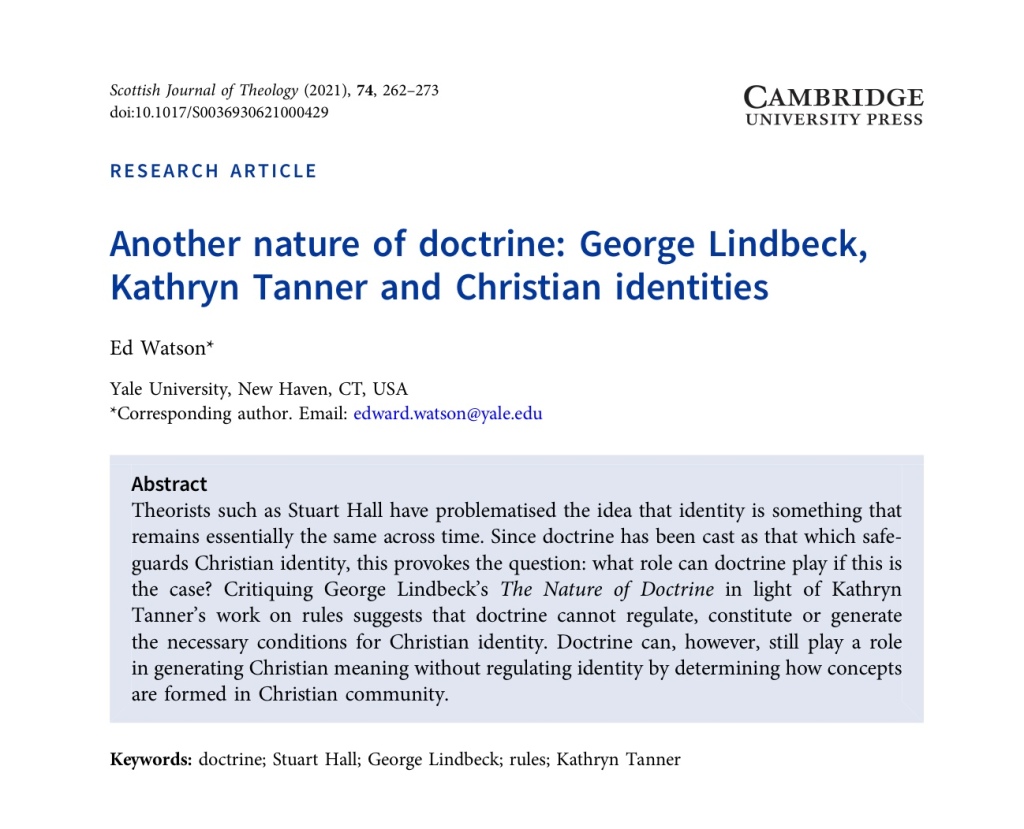
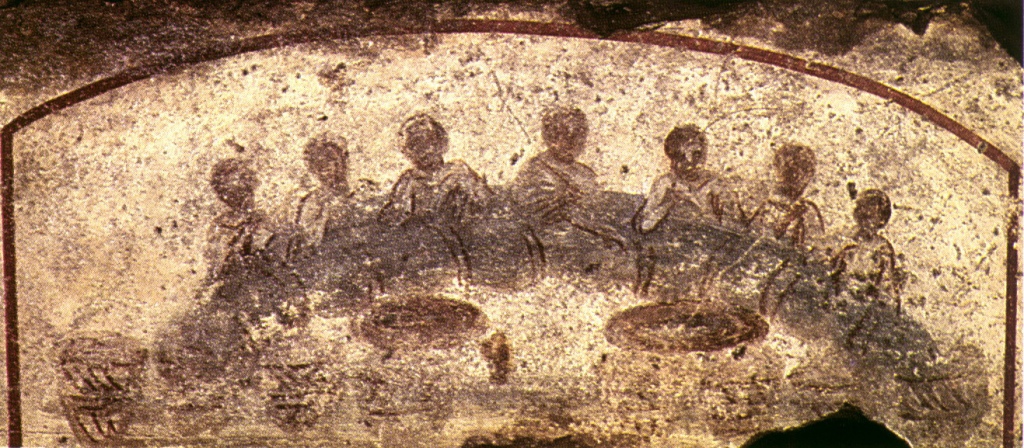


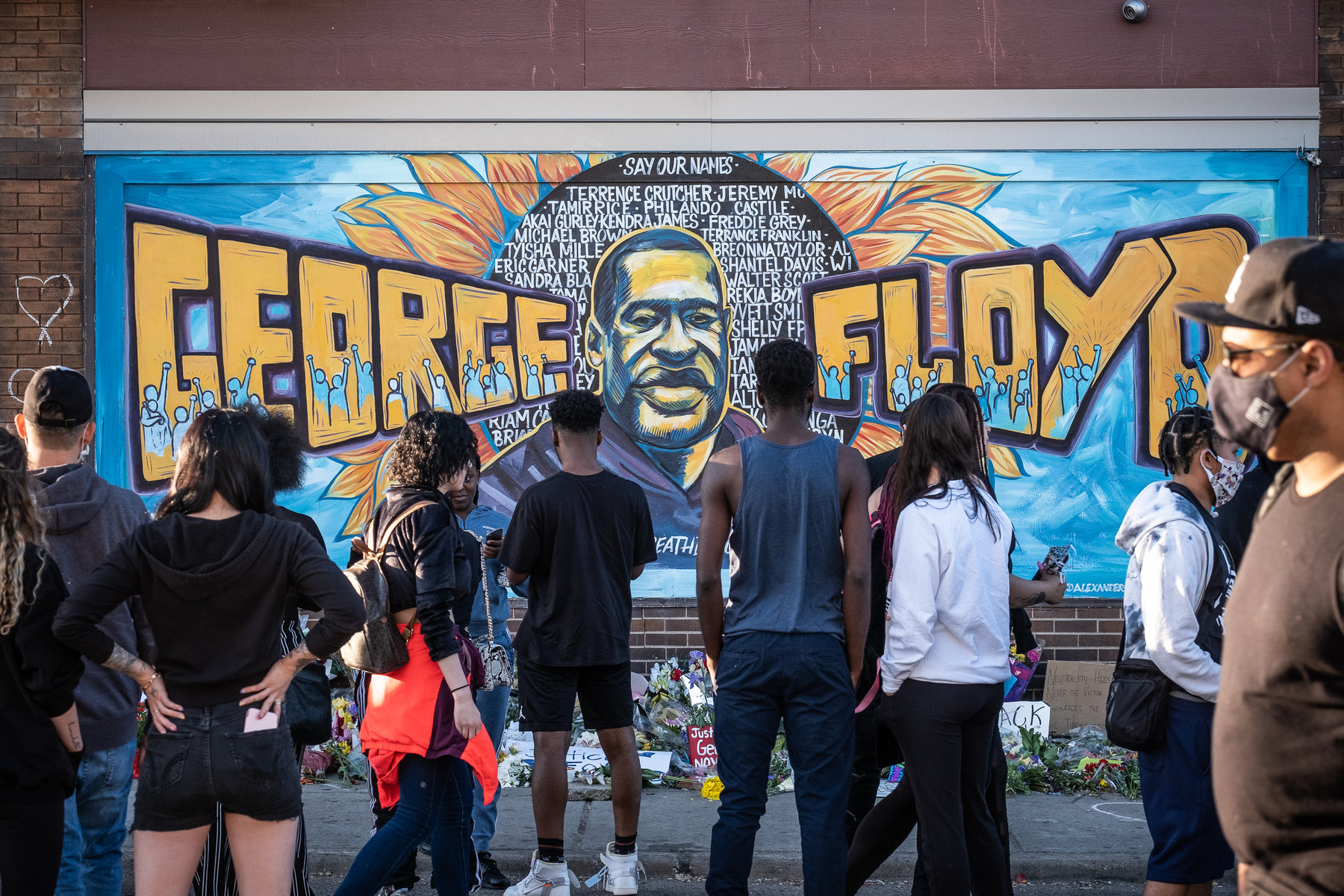 This is an e-mail I wrote to my Dad to try and get at what’s happening in the US and why. It’s severely limited, of course, but I thought it might be helpful for some people whose family occupy similar socio-economic locations.
This is an e-mail I wrote to my Dad to try and get at what’s happening in the US and why. It’s severely limited, of course, but I thought it might be helpful for some people whose family occupy similar socio-economic locations.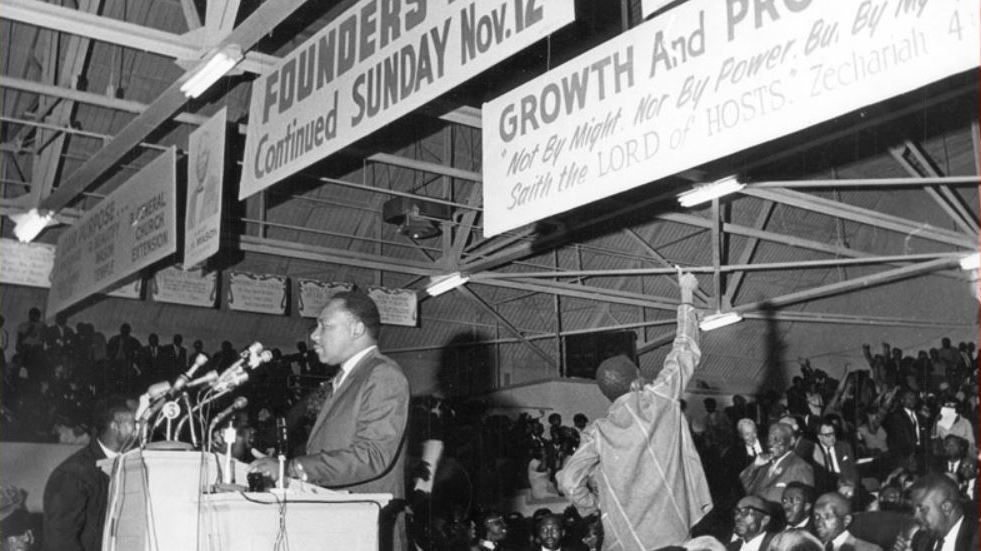 (Photo of Marin Luther King Jr. in Memphis, TN, campaigning for striking sanitation workers.)
(Photo of Marin Luther King Jr. in Memphis, TN, campaigning for striking sanitation workers.)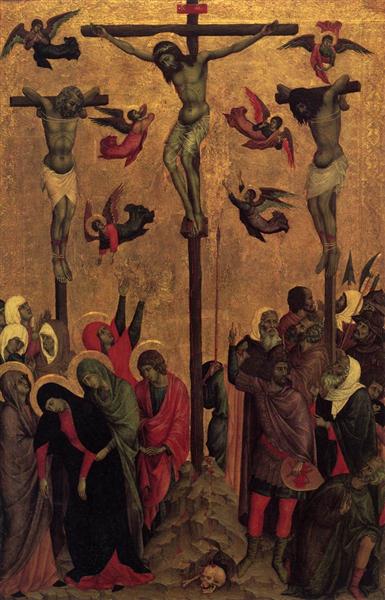 This sermon was preached at Trinity Church, Litchfield. Most of its text appropriates a sermon preached by Karl Barth at Basel Prison, contained in a volume entirely
This sermon was preached at Trinity Church, Litchfield. Most of its text appropriates a sermon preached by Karl Barth at Basel Prison, contained in a volume entirely 
 Image: bridge To Eternity by
Image: bridge To Eternity by  You have come to the sprinkled blood that speaks a better word than the blood of Abel.
You have come to the sprinkled blood that speaks a better word than the blood of Abel.